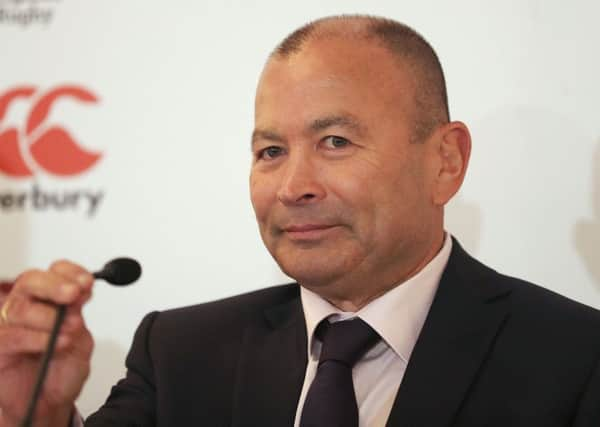Gareth Dyer's rugby column


We’ve had the fallout from the TMO decision at Twickenham, Scotland’s famous Calcutta Cup victory, England head coach Eddie Jones being verbally abused by fans and perhaps the first doubts about where Jones’ England really stand.
Technology in sport is a really difficult thing to love. The phrase “as long as it ensures we get the correct decision” is the new often-used description to validate its use. Football is the latest sport to experience that initial feeling that technology will cure all officiating ills and then find out the reality is that it just provides different bones of contention.
Advertisement
Hide AdAdvertisement
Hide AdTo my mind, if we are going to use technology in any sport then there must be clear processes by which officials, players, coaches and supporters can understand what the technology can and can’t do and just as importantly, when it will be used and when it won’t.
The first thing to recognise is technology in sport isn’t foolproof. Innovation can help improve matters but that takes time and needs the issues to present themselves in the first place. Think in terms of cricket and the DRS technology. At Twickenham the TMO simply made the wrong call despite having the clear evidence in front of him as to who grounded the ball.
The TMO seemed to be rushed into his decision and made a call far too quickly. In union, I also question the impartiality of those providing the footage. There have always been suggestions that host broadcasters are a little slow to provide all angles if it is a tight decision against the home side. This grey area should come to an end.
The bottom line here is that the technology should be an aid and help with those 50:50 calls. Decisions should then be made by the on-pitch referee, I see no need for a TMO. This change would return power to the match official in the same way the “umpires call” has done so in cricket.
Advertisement
Hide AdAdvertisement
Hide AdIn rugby union, the pile up of bodies on the try line usually brings the most contentious decisions. The best placed person to decide is still the on field official but too often the vague referral of “Try: Yes or No?” means too often we are reliant for eye of the needle images to see a grounding. The on-pitch official should clearly state whether they would award a try or not and then see if the camera images backs that up. If inconclusive, then the decision goes with the referee’s call.
One thing that is striking about the England side at present is the lack of sustained intensity. I was watching at Twickenham and it was clear in the final quarter that several England forwards were struggling to last the course. That is hardly a surprise. The likes of Vunipola and Itoje are suffering post-Lions burnout which further questions Jones’ selection decisions.
Putting the fatigue element to one side, during Jones’ tenure he has not yet solved the three biggest selection issues he inherited, namely the balance of the back row, the lack of leadership and the lack of threat from the back three.
Picking three locks is depriving England of pace up front and the new breakdown laws put even more onus on competition at the tackle area. Vunipola and Itoje have been big in those areas but with both a little under par, it is highlighting the lack of balance further back.
Advertisement
Hide AdAdvertisement
Hide AdBehind the scrum things haven’t clicked, whilst captain Dylan Hartley continues to only play 50 minutes each week.
Jones is a master of the diversion tactic and he has been able to ride that when results have been positive. But therein lies the crux.
Are England falling into the All Black trap of being at their best in the two years post a World Cup rather than having used that time to lay the foundations for the next tournament? This was a perennial problem for New Zealand between 1991 and 2007 and if Jones doesn’t start making some big calls soon then he runs the risk of doing the same.
As I have said before, union does like to take the moral high ground over other sports when it suits. The abuse of Jones by some drunken louts was out of order – I hope they are found and banned from attending future games.
Advertisement
Hide AdAdvertisement
Hide AdBut I can’t help but feel that this incident had been coming. In World Rugby’s Principles of the Game Charter, it states that the spirit of the game is maintained through discipline, control and mutual respect. Whilst these might be old-fashioned values to some, they have stood the test of time.
Hearing coaches – Jones is not the only one – using their platform to disrespect opposition has been creeping in for a while and it must stop or run the risk of inciting more idiots and unsavoury situations.